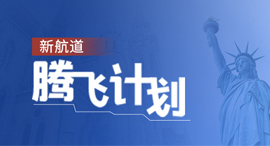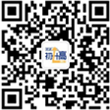积累SAT写作真题范文,轻松应战SAT考试
SAT写作相对其他项目的考试来说难度还是比较大的,所以多积累一些SAT考试写作范文对我们的SAT写作是很有帮助的,为了帮助大家高效备考SAT,熟悉新SAT写作范文与真题题目,下面新航道SAT培训小编为大家整理了一篇SAT写作真题范文,供大家参考。
Give the Data to the People
In his opinion piece "Give the Data to the People" the author Harlan Krumholz emphasizes the importance of Open Data Access Project (YODA), dispels potential concerns thereof and urges more pharmaceutical companies to open clinical trial data to the world for public good. By citing recent news, role models, addressing root causes and using emotive language the author manages to makes his argument persuasive.
To begin with, the author cites a recent development of the YODA Project that Johnson & Johnson, a world's leading pharmaceutical company announces to participate. The Project is designed to make all of its "clinical trial data available to scientists around the world". "This is as an extraordinary donation to society" comments the author who, in this powerful way, begins his article and successfully grabs readers' attention to the topic under discussion, that is, the sharing of clinical trial data.
To follow, author informs the readers a rather disheartening fact that today "more than half of the clinical trials in the US" are not published. This is a stark contrast to the Samaritan decision of Johnson & Johnson. Worse, even when studies are published, the actual data are usually not made available to the public. The author argues that such practice has "troubling implications" for instance, full information on a drug's effects may "never be discovered or released" and end-users of research are "forced to accept the report" without independent re-evaluations. These two implications are indeed fearful reasons to change the status quo of the current practice. As it is known to all, drugs may have ill-effects, so the fact that drug's ill-effects are not disclosed to the public is rather disturbing, thus paving way for more popular support for the Project. Also, the author assumes a rather solemn tone, criticizing the practice as a "violation of a central tenet of the scientific method”, a very serious accusation indeed.

Next, the author addresses the root cause of why pharmaceuticals refuse to open data: their worries about competition as well as potential legal complications if mistakenly used by incompetent scientists. To readers, although the author acknowledges legitimacy to some extent, both reasons could be dismissed as ego-centric or little regard for public good. To dispel these concerns, the author quotes two more industrial leaders such as GSK and Medtronic, both support the Project, as role models and argues that, with more pharmaceuticals sharing such data, "the more we find that many of these problems fail to materialize". To buttress his claim, he quotes YODA's partnering with Medtronic in 2011 with a view to exemplifying how the Project works and its importance to the society. In this case, he cites a medical cancer-treatment device that the Medtronic produces. Unsurprisingly, conflicting results were revealed after two independent reviews, based on the data that the companies made available globally, were commissioned. It is noteworthy that the author's choice of a life-threatening disease perfectly echoes what the author fears as troubling implications if pharmaceuticals refuse to do so. Furthermore, the author dispels potential concerns from pharmaceuticals, the misuse, or even worse, the abuse of such data by emphasizing YODA's role in the Project--gatekeeping. The author repeatedly uses "we" to emphasize his team's role during the whole process. As one of the world's most prestigious university, Yale's reputation is undoubted; therefore readers would be relieved about their unnecessary worry. At this point, the author's apt employment of contrast, logical reasoning, exemplification and Yale University's reputation and authority as referral would suffice to convince readers of the YODA Project.
Toward the end, the author wraps up the importance of the Project by eulogizing the benefits of data sharing. He uses a set of parallel sentences, long sentences Interwoven with shorter ones to create a sense of urgency, appealing to pharmaceutical companies' duty for public good. Phrases such as an organization play a role as a "good global citizen", scientists to "use the data to learn new ways to help patients" are used to uplift individual companies for public good.(667词)
以上就是新航道SAT培训小编为大家整理了一篇SAT写作真题范文,大家可以在备考自己的SAT写作考试的时候多整理一些SAT作文素材,希望能帮大家轻松突破SAT写作。更多SAT相关信息请继续关注杭州新航道SAT培训。



